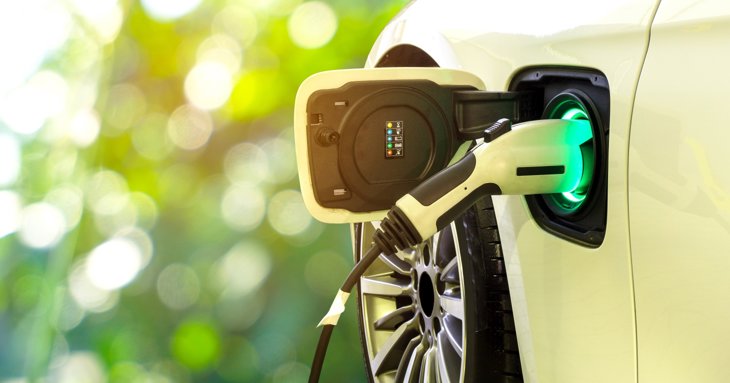How many miles can you travel on a full tank of (very expensive) fuel these days? Probably further than with an electric vehicle, but that's no reason to write them off.
So Glos caught up with the managing director of Cheltenham's Cleevely EV, Matt Cleevely, to get the lowdown on just how far an electric vehicle will take you and busts a few myths along the way...
Which electric cars offer the longest mileage?
The mileage or range of an electric car is dependent on the size of the vehicle battery, so you can have a low range older EV, with a range of 40 plus miles, through to an EV which will achieve up to 350 miles.
Range for electric vehicles as well as their petrol and diesel counterparts is recorded as a WLTP - Worldwide Harmonised Light Vehicle Test Procedure. This measures the vehicle fuel economy, emissions and EV range. This will provide an estimation based on this laboratory test.
Based on WLPT, the electric cars which offer the best range currently available are the Tesla Model 3 Long range, the Mustang Mach-E and the the Kia EV6.
The thing to remember is that these mileage ranges come from laboratory tests and not how heavy your foot is. They also don't take into consideration how much fun electric vehicles are to drive.
Is it the case that the more you pay for the car, the further you will go?
This isn’t necessarily the case with electric vehicles. Sadly, the legacy manufacturers that we are all very aware of including Audi, Mercedes, BMW and Jaguar have all brought EVs to the market with a much higher price tag than a Tesla.
This comes from the build of the vehicle often being from a legacy manufacturer using a platform that can also be used for a petrol or diesel vehicle too. So the vehicle is heavier, and this reduces the range of the vehicle.
How long does it take to charge an electric car?
Approximately 3.8 seconds, as all you need to do is plug it in! But, in all seriousness, for the large proportion of EV owners, the best time to charge is at home overnight or at their workplace during the day at work.
Charging on fast chargers can provide an 80 per cent charge in less than 20 minutes. These are normally the chargers you would see at motorway services.
A 7kwh charging point can take two to three hours, dependent on the vehicle's battery size.
The kind of chargers EV owners may have on their house, or in public car parks is a three-pin plug - the kind you would have on your kettle - and that can be eight to 10 hours based on the battery size.
Where is the best place to charge when out and about?
If home or workplace charging is not an option for you, then it's a simple case of building your charging into your routine, considering where you park and when you do your food shopping.
We have a friend who uses the charging facilities at a National Trust site local to her. When you begin to look at charging infrastructure, you will find lots of options around you.
In Gloucester, there are chargers near The Lock Keepers Pub at Over, where you can go for a lovely walk along the River Severn.
There are also various options in motorway services, petrol stations and we are beginning to see electric vehicle forecourts.
How much can you expect to pay to charge?
This can range from nothing, if utilising free charging options at local shops or businesses, or utilising home solar arrays to fuel your vehicle.
Charging at home will be based on your electricity charges. And while we have seen a rise in home electricity prices, this is still not as big as the rise in fuel prices.
Do hybrid vehicles offer the best of both worlds?
They offer an option for a small percentage of drivers. But it's important to remember that you are carrying around a battery pack and an engine, making the vehicle a lot heavier, as well as still having an engine to maintain.
Toyota will have people believe they have produced a 'self-charging hybrid', but the reality of this is the battery will self-charge a very small amount through regenerative braking. Predominantly, the battery will charge through burning fuel to keep it topped up.
Plug-in hybrids offer another option, or a security blanket of an engine, whilst taking steps towards full electric, with the awareness of plugging in.
Do you have any surprising stories about mileage experiences?
Mileage on EVs changes throughout the year. In the winter, the range will be less as the battery packs are more efficient when warm. During the spring and summer, EV mileage is very dependent on driving style.
The biggest problem in losing mileage is EVs are so much fun to drive, due to the acceleration torque, but the flip side of this is that due to regenerative braking when you are heading down large hills, like Birdlip, you are able to gain more range into the battery.
What should new customers consider when weighing up mileage concerns with buying an electric vehicle?
We advise customers to really consider the journeys they do. On average, most people travel 20 miles per day.
This may not be the case for all, but it's something to really keep in mind.
Most people consider the couple of times a year where they need to travel further than their average daily commute, whether for their holiday or the twice a year visit to family that live further away.
It's worth conceding that for the money you save on fuel, as well as maintenance over the year, you could hire a car for those longer journeys. If you have already made the switch to EV, it's also worth conceding that there are options available to hire longer range EVs to meet your needs.
At Cleevely EV, we hire out a Tesla Model S, with free supercharging to help with longer journeys.
What’s the biggest myth around mileage?
Most of us travel less than we think. The magic number around mileage is 350 miles, but most petrol and diesel car owners inhibit this in their vehicles by having half a tank of fuel.
After driving EVs for the last four years, I would be more concerned about having a low fuel level in an internal combustion engine vehicle than I would be with a low mileage range on an electric vehicle dash.






.png?width=690&height=361&rmode=pad&bgcolor=ffffff&quality=85)





.png?width=432&height=227&rmode=pad&bgcolor=ffffff&quality=85)




